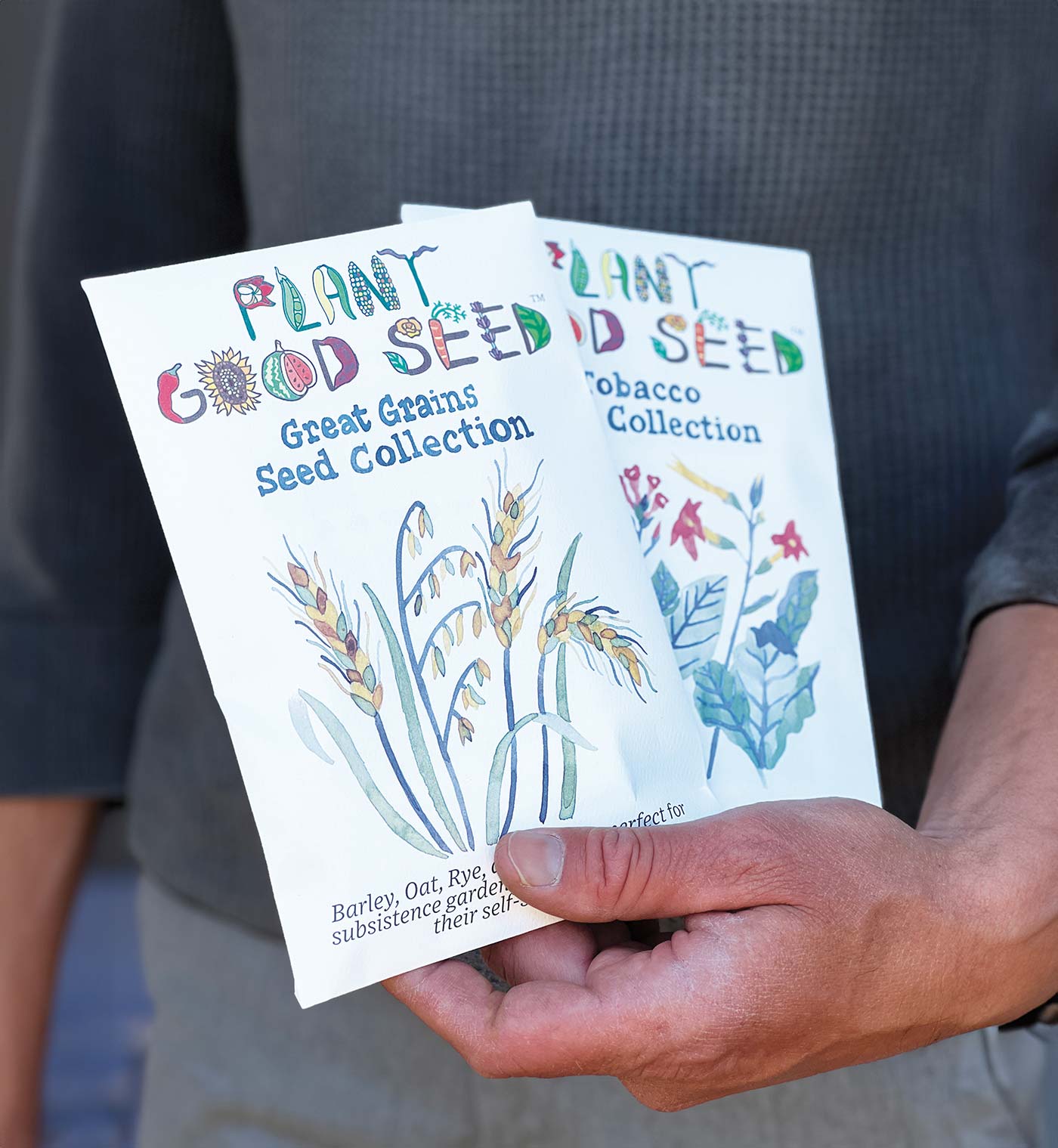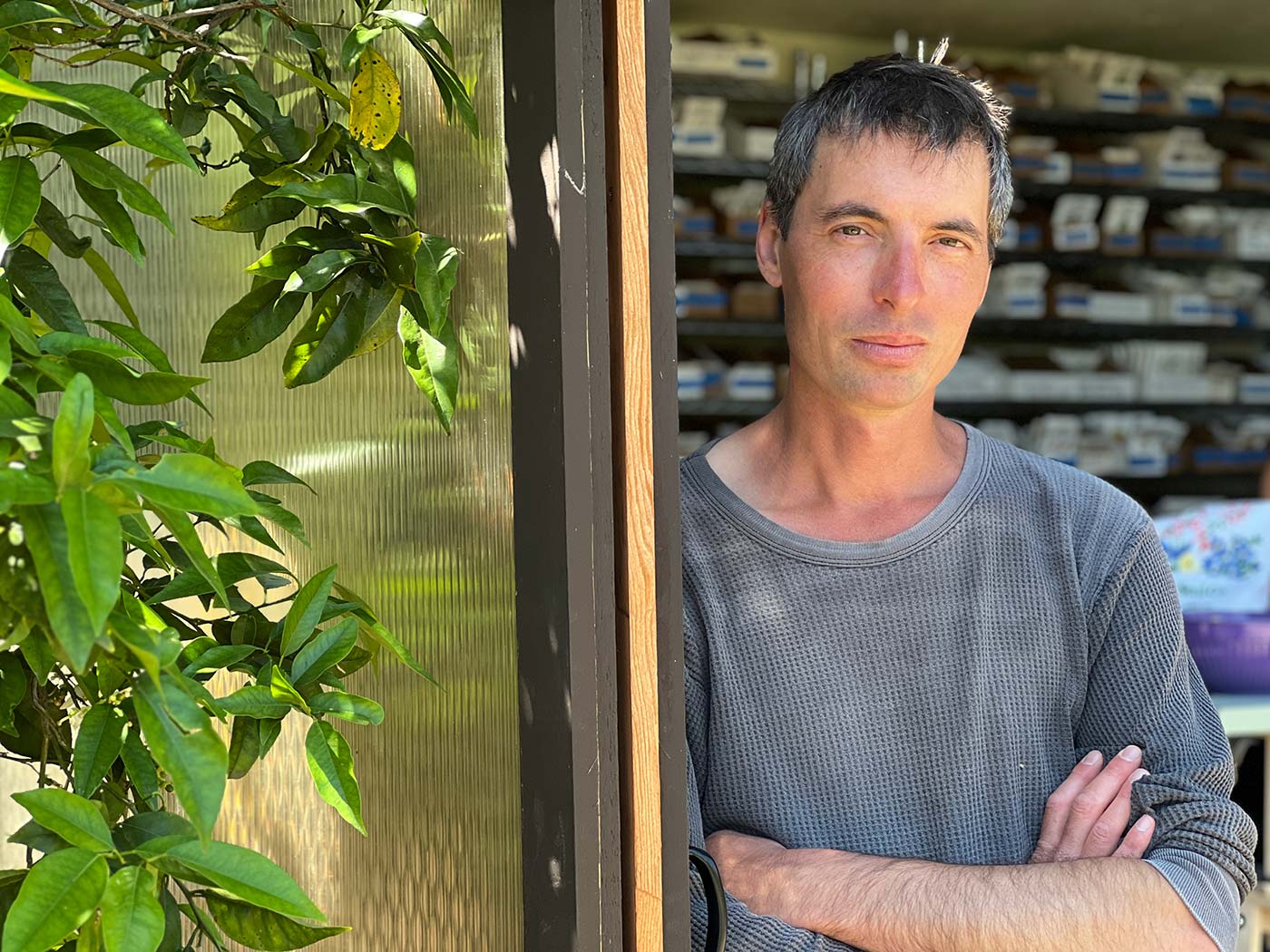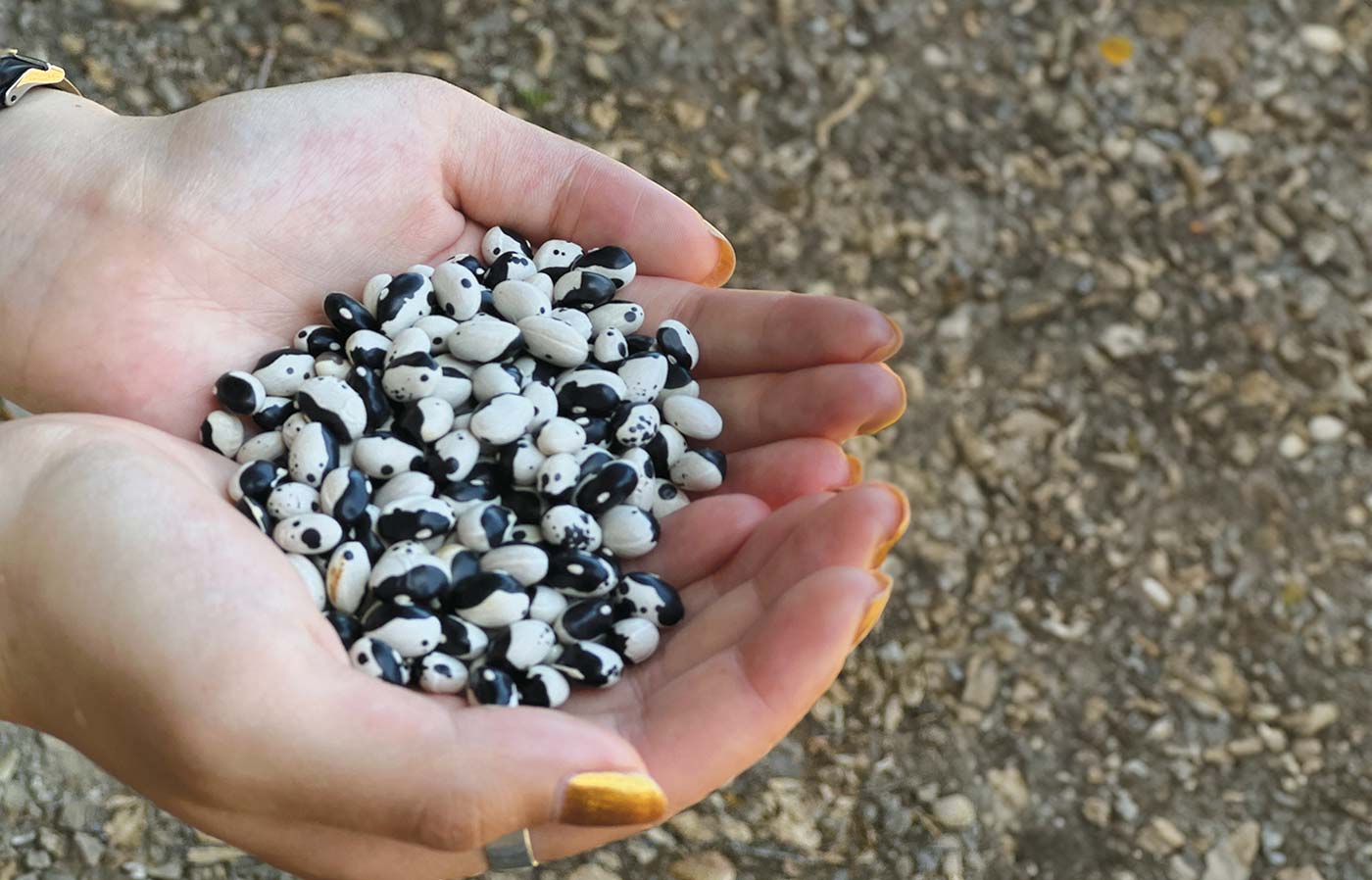Saving Good Seeds: The Plant Good Seed Company
Saving seeds from organic heirloom plants is becoming increasingly popular, says Quin Shakra, yet this business owner remains surprised that more local farmers aren’t participating in the practice, given an increasing interest in the healthfulness of “heritage” foods and emphasis on these plants’ origins.
But seeds are more, says Shakra, owner and manager of The Plant Good Seed Company, based in Ojai. His company not only offers a unique variety of seeds, it improves the farming conditions locally.
“In a lot of ways, people don’t really get seeds.
They don’t know how to save seeds,” he says. “People—even good, ecologically based farmers—view seeds as input,” rather than as an integral part of the entire growing cycle.
According to Shakra, plants are bred much like livestock for desirable traits, either naturally or by humans. But hybrid plants—two plants bred together for two or more specific desirable traits— don’t reproduce as well. Their seeds will often produce unpredictable or even unproductive plants. “Hybrid plants will not save ‘true,’” Shakra says. “There are many people who intentionally save seeds from hybrid plants to ‘dehybridize’ and try to restore their traits via open-pollinated plant breeding,”

Plants that are bred “true” are those pollinated by wind, insect or animal. The seeds from these plants can be planted to grow with the same characteristics as the parent plant. To create a variety of viable, true seeds, Shakra has needed to find a variety of farms and farmers. The first farmer to start helping collect seeds around eight years ago was Steve Sprinkel, the eponymous farmer co-owner of The Farmer and the Cook.
According to Sprinkel, Shakra (a University of Oregon student at the time) started working at the restaurant almost 20 years ago. The farmer put the college student to work wherever he was needed, from the store to the fields.
“I’ve always grown seeds,” says Sprinkel. “It’s beneficial. It’s sort of a religion. They require a remarkable lack of participation.”
Shakra began his first plant-to-seed ventures on a spot formerly used by Sprinkel in Meiners Oaks. “Quin now has a cohort of producers and vendors,” says Sprinkel. “They will find some seeds going out of production and focus on cultivating that.”
Shakra says the importance of saving seeds can’t be overstated, especially on a regional level where conditions tend to be naturally similar for pollen and seed propagation. Each farm in the area has a vested interest in what is growing on surrounding farms.
For example, if one farm is growing striped zucchini, they might want to be aware of cross pollination with another nearby squash plant to figure out how to avoid it or plant in concert with that plant, if needed.
“It surprises me that even after a decade of doing this work, more local farms or farmers haven’t made the connection that locally sourced seed, or producing seed on farm, is a critical link of ecological regenerative agriculture,” says Shakra. “Local seed production can increase a given crop’s bioregional suitability over time—think heat, drought tolerance, fertility / soil needs.”

Quin Shakra sees a lot of his life in edges. He lives on the edge of an orange grove and farms his seeds on the edge of a creek and on the edges of another farmer’s field. Saving seeds is on the edge of mainstream and grassroots, so maybe it is right where he is supposed to be.
While Shakra was initially involved in the production of every seed crop in the catalog, Plant Good Seed now gathers well-tested seeds from around 15 producers (of which he is one). Most come from Southern California, but others come from farther afield. Shakra says the biggest challenge is sorting and cleaning the seeds before packaging them.
Shakra grows his plants in the East End of Ojai, where he experiments with hardy native varieties. His field, on the edge of a creek there, is called Ivan’s Meadow after his cat.
All of the seed is organic and none is GMO, Shakra says, noting that GMO—or genetically modified organisms—isn’t a scientifically accurate term. The domination of patented seed varieties by a few large corporations makes wild or wind seed gathering and propagation a more important way to protect native plants so they remain accessible to everyone, he says.
Plant Good Seed offers its seeds in colorful packets, adorned with illustrations by Goda Trakumaite. Plants grown from those seeds will produce seeds that the home gardener can use after harvest. The best time to gather seeds tends to be late spring, early summer, or as the flowers develop seed pods, (though depending on the plant, seeds can be collected year-round).
- Plant Good Seed packets are available at plant nurseries around Ventura County, at several small shops in Ojai or by ordering online at www.PlantGoodSeed.com. The seed catalog lists approximately 250 seed vegetable, flower, and herb seeds produced by 15 or so small seed growers. It also features a smattering of F1 vegetable hybrids for more serious growers.





